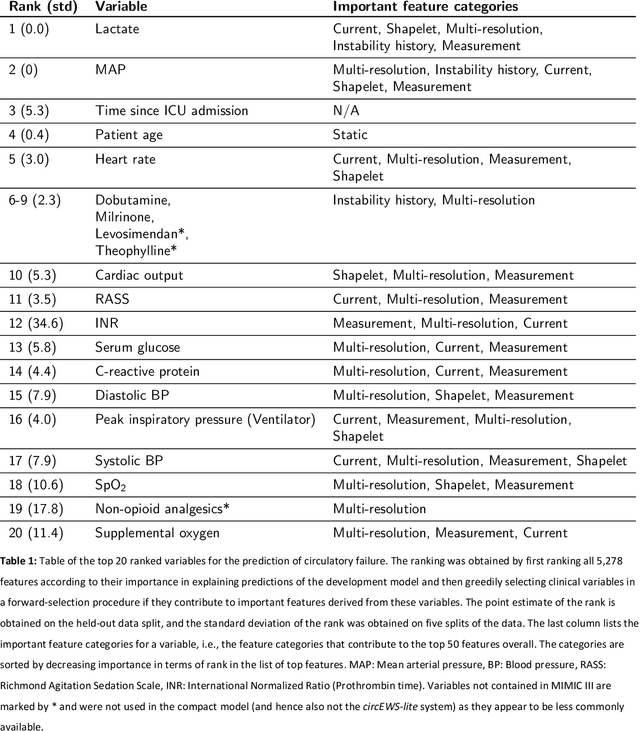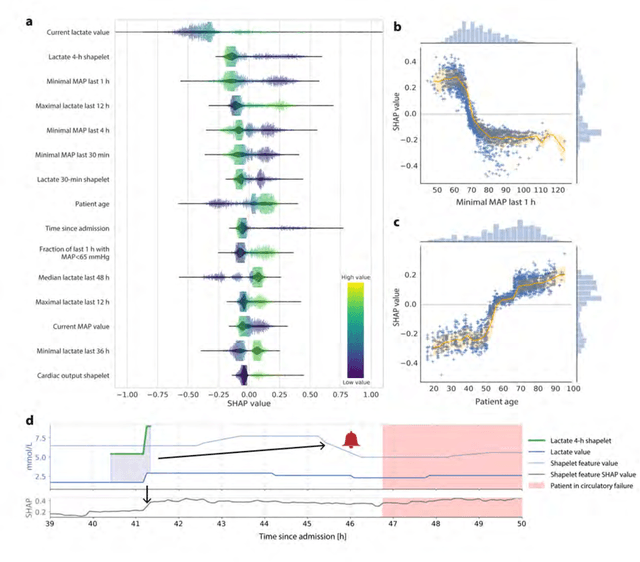Dean Bodenham
Machine learning for early prediction of circulatory failure in the intensive care unit
Apr 19, 2019



Abstract:Intensive care clinicians are presented with large quantities of patient information and measurements from a multitude of monitoring systems. The limited ability of humans to process such complex information hinders physicians to readily recognize and act on early signs of patient deterioration. We used machine learning to develop an early warning system for circulatory failure based on a high-resolution ICU database with 240 patient years of data. This automatic system predicts 90.0% of circulatory failure events (prevalence 3.1%), with 81.8% identified more than two hours in advance, resulting in an area under the receiver operating characteristic curve of 94.0% and area under the precision-recall curve of 63.0%. The model was externally validated in a large independent patient cohort.
Searching for significant patterns in stratified data
Aug 24, 2015



Abstract:Significant pattern mining, the problem of finding itemsets that are significantly enriched in one class of objects, is statistically challenging, as the large space of candidate patterns leads to an enormous multiple testing problem. Recently, the concept of testability was proposed as one approach to correct for multiple testing in pattern mining while retaining statistical power. Still, these strategies based on testability do not allow one to condition the test of significance on the observed covariates, which severely limits its utility in biomedical applications. Here we propose a strategy and an efficient algorithm to perform significant pattern mining in the presence of categorical covariates with K states.
 Add to Chrome
Add to Chrome Add to Firefox
Add to Firefox Add to Edge
Add to Edge